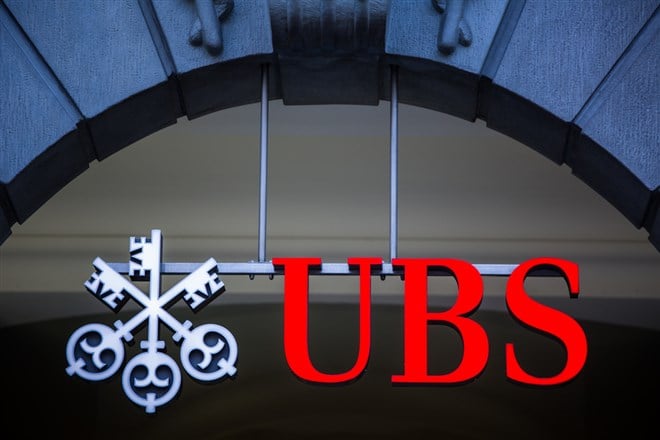
Key Points
- UBS buys Credit Suisse for $3.1 billion in an all stock deal struck at a 63% discount to Friday's market price.
- Another domino falls in the banking crisis. Is there more to come?
- The Fed will be in the hot seat in its Wednesday meeting. It has to choose between fighting inflation and a banking crisis.
- 5 stocks we like better than UBS Group
Swiss banking giant UBS NYSE: UBS has acquired its troubled competitor Credit Suisse NYSE: CS for $3 billion in one of the most significant banking M&A deals since the financial crisis.
After the collapse of Silicon Valley Bank and Signature Bank in the US, investors grew wary of the already struggling Credit Suisse and quickly withdrew funds. The WSJ’s sources say the bank experienced outflows of around $10 billion per day last week, while the bank’s book value stood at only $45 billion as of the end of 2022.
Faced with imminent insolvency, Credit Suisse received over $100 billion in liquidity from the Swiss National Bank. However, when the central bank failed to stop the bleeding, it pushed UBS to acquire Credit Suisse, as the alternative would have been bankruptcy, significantly tarnishing the reputation of Swiss banking.
The acquisition, which values Credit Suisse at $3.1 billion, will be paid entirely in UBS shares. Credit Suisse shareholders will receive one UBS share for every 22.48 shares of Credit Suisse owned, a 63% discount on Credit Suisse’s closing closing share price on Friday.
One major caveat of the deal is the treatment of Credit Suisse’s contingent convertible bonds (CoCo bonds), which will be wiped out in the transaction, sparking controversy among market commentators.
Why Is This Deal Happening?
Credit Suisse has been the black sheep of banking for the last several years, mired in scandals, poor risk management, and massive losses from high-risk clients. Most notably, it racked up several billion dollars in losses in early 2021 alone, between the collapses of the Archegos hedge fund and Greensill Capital.
So when stress started to percolate in the banking system, investors immediately shot Credit Suisse a suspicious glance. Trading partners like BNP Paribas and Deutsche Bank restricted trading with the bank, while traders aggressively bet against its shares and bonds.
Even interventions from Switzerland’s central bank couldn’t stop the bleeding. Credit Suisse was illiquid, and had to be put into bankruptcy or sold immediately, it simply could not withstand another day of outflows.
Left with no other option, the Swiss National Bank brokered a favorable deal for UBS to buy Credit Suisse, which a $9 billion backstop will back from the central bank to cover potential losses related to absorbing Credit Suisse. Despite appearing a hesitant buyer, UBS significantly benefits from eliminating its primary competitor in Swiss banking.
Credit Suisse, one of Switzerland’s most storied companies, has now met its end at 166 years old.
Will This Force a Fed Pause or Pivot?
In less than two weeks, we’ve seen two large US banks fail, and a massive Federal Reserve backstop to US regional banks. Now that one of the world’s biggest investment banks was saved from failure in the nick of time, traders are beginning to bet on the Fed reversing course on its interest rate hiking campaign.
According to the CME’s FedWatch tool, traders are currently betting that there’s a 40% chance of the Fed pausing and a 60% chance of a 25 basis point hike. This is a huge departure from just two weeks ago, when the market was pricing in a 78% chance of a 50 basis point hike in interest rates.
It’s easy to see the logic, too. The Fed’s rapid hiking of rates, from 0 to 4.5% in a year’s time, is the fastest pace on record. Back when interest rates were close to zero, bank lending opportunities were sparse and buying long-term bonds was one of the most attractive options to put excess capital to work. However, when short-term rates started to skyrocket, it created massive losses for banks.
As a result, the Federal Reserve finds itself between a rock and a hard place. It’s contending with a banking crisis largely created by rate hikes, and all the while fighting an intense battle with inflation that isn’t going as planned. The Fed must now tread carefully, as another rate hike could further hurt confidence in the banking system.
With a Fed meeting on Wednesday, all eyes are on Chairman Powell.
Before you consider UBS Group, you'll want to hear this.
MarketBeat keeps track of Wall Street's top-rated and best performing research analysts and the stocks they recommend to their clients on a daily basis. MarketBeat has identified the five stocks that top analysts are quietly whispering to their clients to buy now before the broader market catches on... and UBS Group wasn't on the list.
While UBS Group currently has a "Moderate Buy" rating among analysts, top-rated analysts believe these five stocks are better buys.
View The Five Stocks Here
MarketBeat just released its list of 10 cheap stocks that have been overlooked by the market and may be seriously undervalued. Click the link below to see which companies made the list.
Get This Free Report
